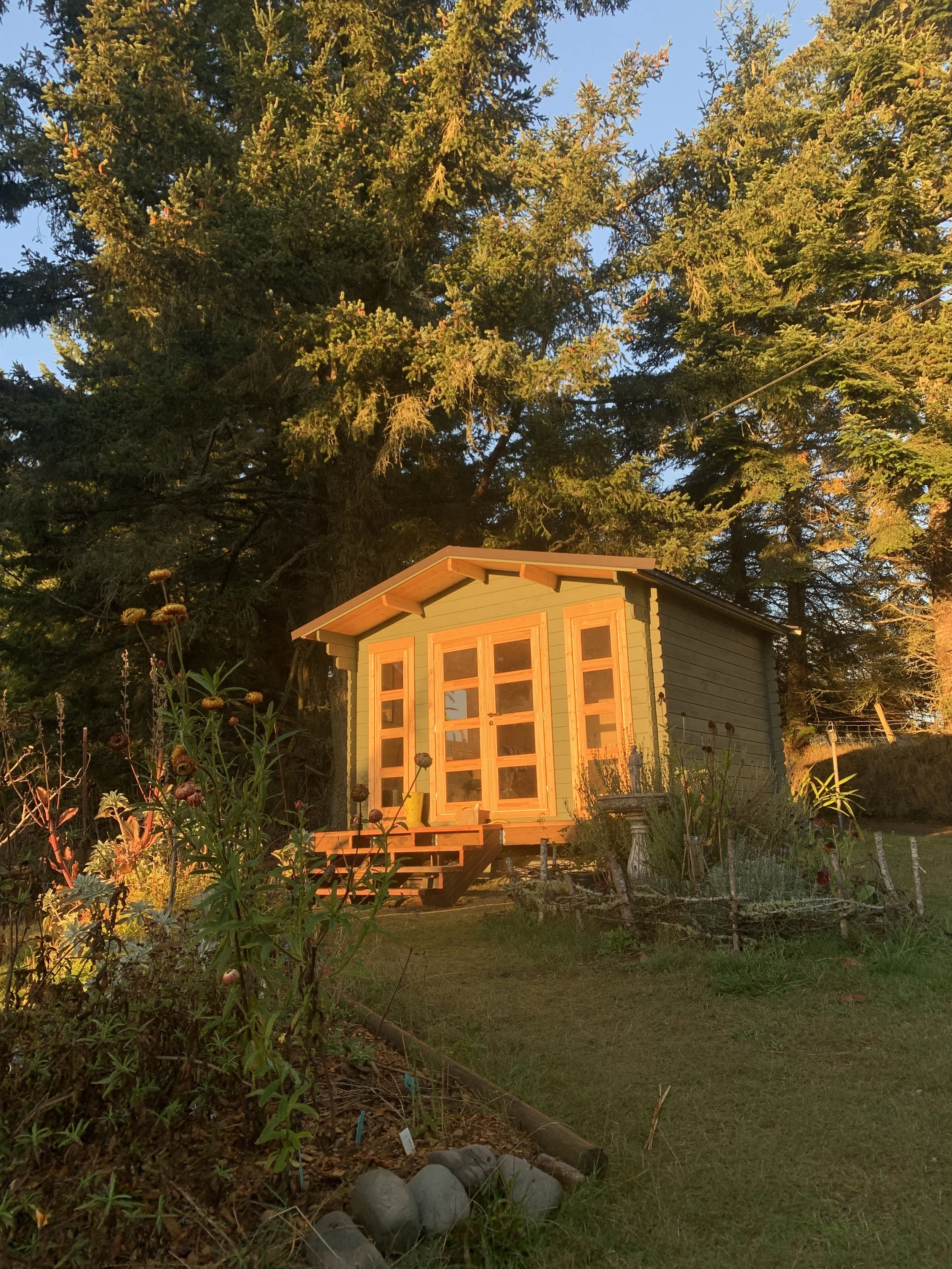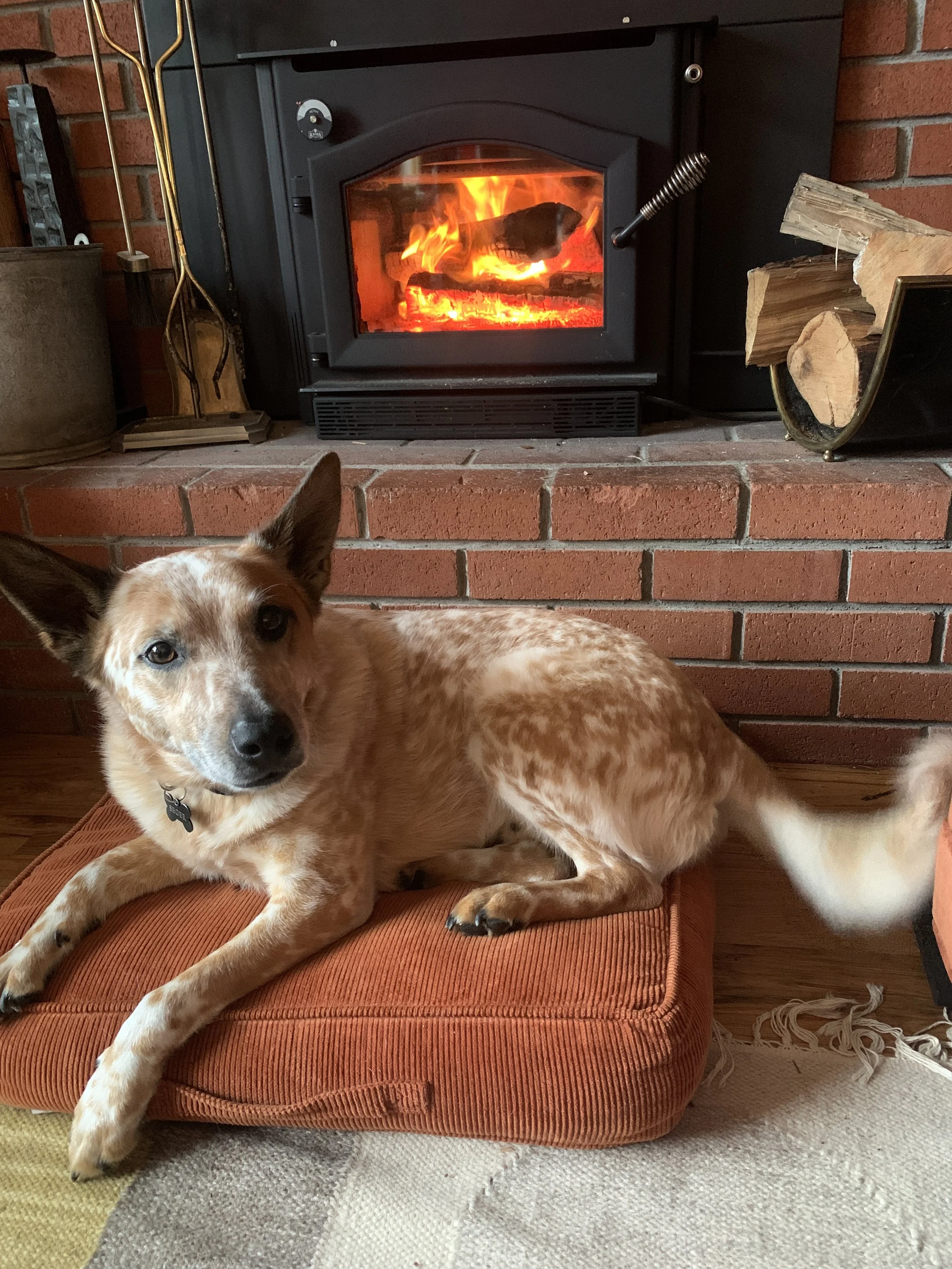Therapy is a collaborative process.
Rediscover your power, potential, & resilience through honoring all aspects of your identity.
Personalized Care
My practice combines depth psychology with spirituality and evidenced based treatments. Care is personalized to your current needs.
What I do
Therapy is a safe, confidential space to express your feelings, thoughts, and behaviors without judgment. I support you in addressing anxiety, depression, trauma, relationships, and life transitions. Using creative, depth psychological, and evidence-based methods tailored to you, we develop coping strategies, build resilience, and foster personal growth. Therapy aims to increase self-awareness and equip you with tools for positive, lasting change and improved well-being.
-
I work with adult (18+) creatives, helpers, rebels and responders throughout the state of California. I provide Telehealth services. Sessions are typically 50 minutes on a weekly or bi-weekly basis and I charge $175 per session.
-
First Responder therapy is a specialized form of mental health support designed to address the unique challenges faced by individuals such as firefighters, police officers, paramedics, and other emergency service personnel. These professionals frequently encounter traumatic events, high-stress situations, and critical incidents that can impact their emotional and psychological well-being.
Therapeutic approaches for first responders focus on trauma recovery, stress management, and resilience building. Common techniques include cognitive-behavioral therapy (CBT), Eye Movement Desensitization and Reprocessing (EMDR), and mindfulness-based interventions. Treatment often emphasizes coping strategies to manage symptoms of post-traumatic stress disorder (PTSD), anxiety, depression, and burnout.
A key component of first responder therapy is creating a safe, confidential space where individuals feel understood and supported, acknowledging the culture and demands of their professions.
-
If you are in need more tailored and specific support, I offer addiction-focused counseling. I will provide psychoeducation on the process of recovery, and work with you to create a plan that meets your goals.
Sessions are typically 50 minutes on a weekly or bi-weekly basis at a rate of $175 per session -
We are social creatures. Working with a group of peers all making a collective choice to move towards change is a powerful experience.
Groups have a maximum capacity of 10 people. Sessions are typically 90 minutes on a weekly basis and fees per session vary per group.
Available Services
Telehealth Sessions — $175
I provide online therapy from a little cabin in the northern woods to Individuals across the State of California
Outdoor Sessions — $175
I am able to provide outdoor walking sessions to Individuals in Humboldt County, CA, Dogs welcome.

Trusty Canine Co-Therapists
at most sessions.
My Approaches.
-
Mindfulness-Based
The goal of Mindfulness in therapy is to help develop the ability to stay in the present moment and experience thoughts and feelings without judgement and to avoid worrying about the past or future. As a relapse prevention tool, Mindfulness techniques will be taught to help in overcoming cravings and to help with managing triggers to use.
-
Ecotherapy
This is a transdisciplinary practice designed to help you deeply reconnect with yourself by actively engaging with the natural world. A fundamental principle of this approach is the understanding that our inner world and the outer environment are intimately connected. Through intentional and mindful activities in nature, we can foster meaningful internal growth and healing.
-
Eye Movement Desensitization and Reprocessing (EMDR)
EMDR is an evidence-based therapy for the treatment of single-event and chronic, or complex, trauma. This neurologically-informed therapy is geared towards assisting you to transform negative experiences into adaptive learning experiences.
-
Depth Psychology
Depth psychology is a psychodynamic process that aims to help individuals become aware of what has been cast out of consciousness or not yet able to be known. Healing is associated with allowing what has been repressed, rejected, denied or ignored to come forward so that the person can understand, explore its significance and integrate it, allowing for a transformation in consciousness. Depth Psychology also attends to the way unconscious processes express themselves in society and culture, and how culture affects the psyche.
-
Psychodynamic Psychotherapy
Psychodynamic therapy is the psychological interpretation of mental and emotional processes. Rooted in traditional psychoanalysis, it draws from object relations, ego psychology, and self psychology. It was developed as a simpler, less-lengthy alternative to psychoanalysis. This type of therapy aims to address the foundation and formation of psychological processes. In this way, it seeks to reduce symptoms and improve people’s lives.
-
Liberation Psychology
Liberation psychology is an orientation that seeks to develop and encourage local understandings and practices that can support people’s desires and actions to create a more just, peaceful, and sustainable world. In my work, using a Liberation Psychology framework places emphasis on empowerment through increasing awareness of the intersection of identity, culture, historical oppression, and individual potential.
-
Dialectical Behavior Therapy (DBT)
The overall goal of DBT is to help you change the behavioral, emotional, thinking, and interpersonal patterns that are causing suffering in your life. This treatment will support you in learning mindfulness, interpersonal effectiveness, emotion regulation, and distress tolerance skills that lead to building a life worth living.
-
Expressive Arts Therapy
The expressive therapies are the use of the creative arts as a form of therapy, including the distinct disciplines expressive arts therapy and the creative arts therapies. Unlike traditional arts expression, the process of creation is emphasized rather than the final product.
-
Integrative Counseling
Integrative therapy is an approach to treatment that involves selecting the techniques from different therapeutic orientations best suited to a client’s particular problem. By tailoring the therapy to the individual, the goal is to produce the most significant and meaningful effects for each person.
-
Psychoeducation
Psychoeducation is an evidence-based therapeutic intervention for patients and their loved ones that provides information and support to better understand and cope with illness and addiction recovery. This means I’ll be teaching you about the process of recovery, from initial physiological symptoms and PAWS (post acute withdrawal symptoms), to long-term solutions and recovery maintenance.
-
Motivational Interviewing
Motivational Interviewing (MI) is a collaborative and goal-oriented style of communication designed to strengthen personal motivation and commitment to change. This technique will assist to explore your own reasons for change in an atmosphere of acceptance and compassion.
-
Cognitive Processing Therapy (CPT)
Cognitive processing therapy is an evidence-based therapy used to help people recover from PTS and PTSD and related conditions. It includes elements of cognitive behavioral therapy treatments, one of the most widely used evidence-based therapies.







